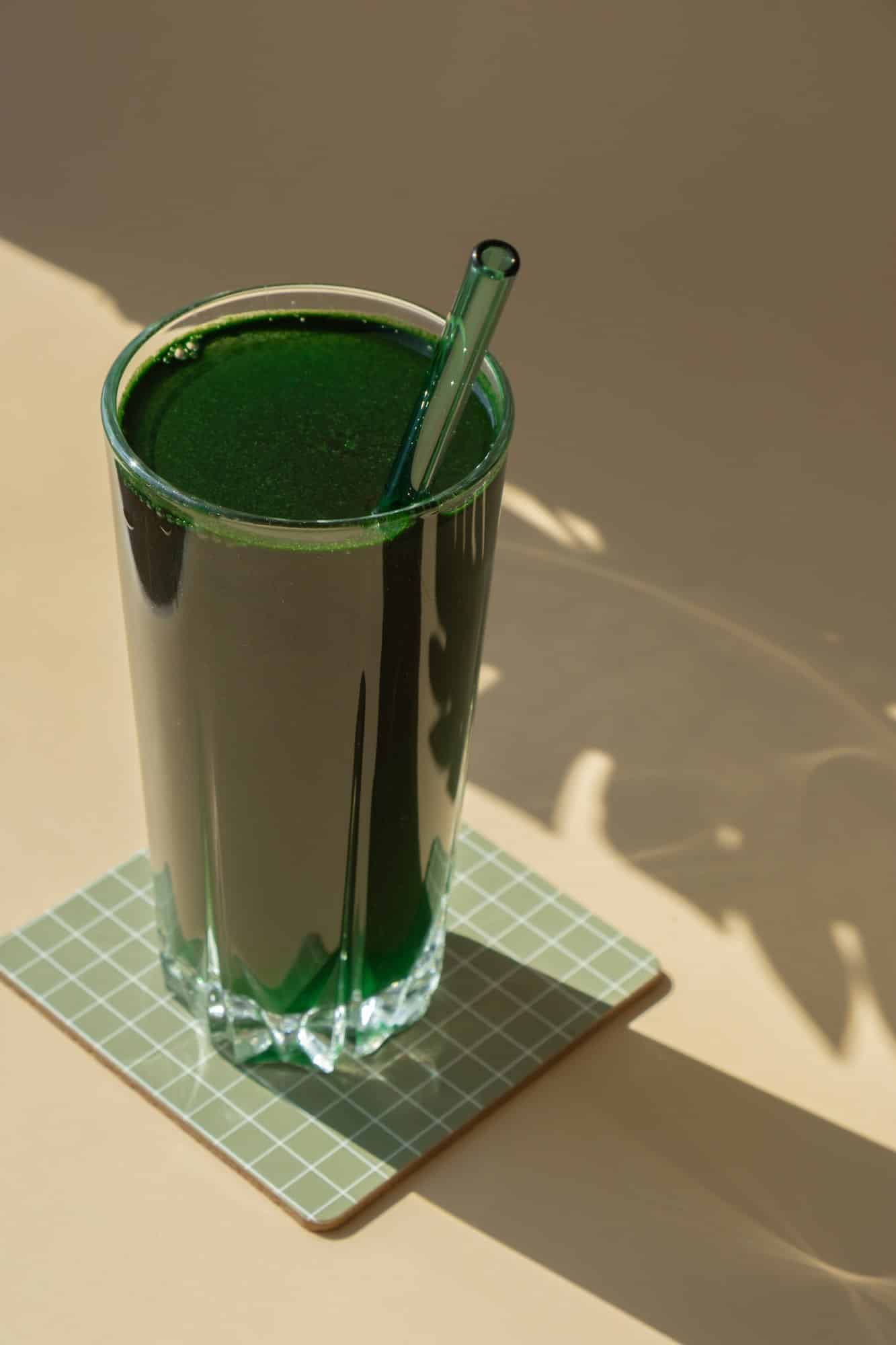As a savvy health-conscious reader, you may have come across a myriad of health-related articles or watched countless wellness videos on various platforms. You have most likely seen the term "spirulina" tossed around. It’s gaining increased recognition in the wellness circles due to its associated health benefits. If you’re curious about this algal wonder and its touted health benefits, particularly in reducing inflammation, you’re in the right place. Let’s dive in and explore the efficacy of algae-based supplements in mitigating inflammatory conditions.
The Power of Spirulina: Understanding This Superfood
Spirulina is a microscopic blue-green algae that thrives in fresh and saltwater environments. It has been used as a dietary supplement due to its rich content of proteins, vitamins, and minerals. But what is more intriguing about this microalgae is its potential anti-inflammatory properties.
En parallèle : How Does Precision Medicine Tailor Cancer Treatment to Individual Genetic Profiles?
Scientists have taken an interest in spirulina because of its high concentrations of fatty acids, particularly omega-3. According to research scholars’ findings, omega-3 fatty acids can significantly reduce inflammation levels in the body. More intriguingly, spirulina is considered a sustainable source of these beneficial acids.
Spirulina, Inflammation and Google Scholar Insights
Sifting through Google Scholar, you will find a wealth of scholarly articles showcasing a significant relationship between spirulina intake and reduced levels of inflammation.
A lire également : What New Approaches Are Being Developed for Non-surgical Treatment of Glaucoma?
In a study found on Google Scholar, spirulina was shown to reduce inflammation by down-regulating inflammatory mediators. This property is mainly credited to a compound found in spirulina known as C-phycocyanin. This pigment protein complex has been noted for its antioxidant, anti-inflammatory, and neuroprotective effects.
Another study on Google Scholar demonstrated that spirulina supplementation reduced inflammatory markers in the blood of participants. The results indicated a significant decrease in C-reactive protein, a key marker of inflammation in the body.
PubMed and Crossref Studies on Spirulina’s Anti-inflammatory Effects
Turning to other academic databases such as PubMed and Crossref, the evidence supporting spirulina’s anti-inflammatory effects becomes even more compelling.
In one PubMed study, spirulina was found to inhibit the production of pro-inflammatory cytokines, reducing inflammation and potentially preventing the onset of chronic diseases.
Crossref also features studies examining the role of spirulina in mitigating inflammation-induced damage. One such study found that spirulina’s antioxidant properties play a crucial role in reducing oxidative stress, a significant contributor to inflammation.
Lipids, Oils and Fatty Acids in Spirulina
Delving deeper into what makes spirulina an effective anti-inflammatory agent, we find that its lipid composition plays a pivotal role. The oil from this microalgae is rich in gamma-linolenic acid (GLA), a type of omega-6 fatty acid that’s been associated with significant anti-inflammatory effects.
Research has shown that spirulina has a higher GLA content than most other plant sources. GLA is a precursor to several key compounds that play vital roles in reducing inflammation. Notably, most of these compounds are not typically found in the modern diet.
Algal Production and Commercial Availability of Spirulina
Given the significant health benefits of spirulina, it’s no wonder that algal production has ramped up in recent years. The food industry has turned to algae-based supplements as a viable, eco-friendly source of omega-3 and omega-6 fatty acids.
Spirulina is commercially available in various forms, including tablets, powders, and capsules. These are easy to incorporate into your daily diet, whether mixed into smoothies or taken as a supplement.
Remember, while spirulina shows promising effects in reducing inflammation, it’s essential to seek professional advice before starting any new supplement regimen.
In summary, spirulina is a nutrient powerhouse. Its richness in beneficial oils, lipids, and fatty acids contribute to its anti-inflammatory effects, as evidenced by numerous studies from reputable sources such as Google Scholar, PubMed, and Crossref. With the increased commercial production of algae-based supplements, incorporating these beneficial compounds into our diets is more accessible than ever.
Potential Risks and Side Effects of Spirulina Intake
As with any dietary supplement, the intake of spirulina has potential risks and side effects that need to be considered. While spirulina is generally deemed safe for most people, there can be some adverse reactions in certain scenarios.
One potential concern with spirulina is its high content of nucleic acids. These substances, when consumed in large quantities, can lead to excessive build-up of uric acid, which could potentially elevate the risk of gout or kidney stones. It’s therefore important to carefully regulate the dosage of spirulina intake.
Allergic reactions are also a possibility, especially for individuals who are allergic to seafood, seaweed, and other sea vegetables. Symptoms could include a rash, itching, difficulty breathing, and swelling of the face, lips, tongue, or throat.
Furthermore, spirulina grows in both saltwater and freshwater and has the potential to absorb heavy metals and toxins if grown in contaminated waters. Therefore, it’s crucial to ensure that the spirulina you are consuming comes from a reputable source to avoid potential contamination.
Always check with your doctor or a healthcare professional before starting a new dietary supplement, including spirulina.
Spirulina vs. Fish Oil for Omega-3 Fatty Acids
When it comes to obtaining omega-3 fatty acids, fish oil has traditionally been the go-to source. However, spirulina presents a promising alternative for those seeking a plant-based option.
Fish oil is known for its abundance of eicosapentaenoic acid (EPA) and docosahexaenoic acid (DHA), two types of omega-3 fatty acids known for their heart health and anti-inflammatory benefits. Still, it comes with its potential downsides, including the risk of heavy metal exposure and overfishing, which poses significant ecological concerns.
On the other hand, spirulina, the blue-green algae, not only provides a vegetarian-friendly source of omega-3 fatty acids but also carries a significantly lower risk of heavy metal exposure, provided it’s sourced responsibly. Furthermore, spirulina is an eco-friendly option that requires less space and resources to grow compared to fish.
While spirulina does not provide DHA and EPA directly, it contains alpha-linolenic acid (ALA), which can be converted into EPA and DHA in the body, albeit at a lower efficiency. Nonetheless, spirulina’s rich array of other health-promoting compounds – including its bioactive compounds, antioxidants, and anti-inflammatory agents – make it a worthy contender in the health supplement landscape.
Conclusion
In conclusion, spirulina, the microscopic blue-green algae, holds great potential as an anti-inflammatory dietary supplement. Its rich content of omega fatty acids, antioxidants, and bioactive compounds offer substantial health benefits, including reducing inflammation and oxidative stress, as evidenced by numerous studies from reputable sources such as Google Scholar, PubMed, and Crossref.
However, it’s crucial to approach spirulina supplementation with caution, taking note of the potential risks and side effects, such as allergic reactions and heavy metal contamination. It’s always recommended to seek professional advice before starting any new supplement regimen.
Comparatively, spirulina presents an environmentally-friendly and vegetarian-friendly alternative to traditional sources of omega-3 fatty acids, like fish oil. Although the body’s conversion of ALA to EPA and DHA is less efficient, the overall health benefits of spirulina make it a worthy supplement to consider.
With the ongoing advancements in algal production and the commercial availability of spirulina supplements in various forms, including tablets, powders, and capsules, it’s now easier than ever to incorporate these beneficial compounds into our daily diets. The future of algae-based supplements looks promising, with spirulina leading the charge as an ecological and health-conscious choice.










